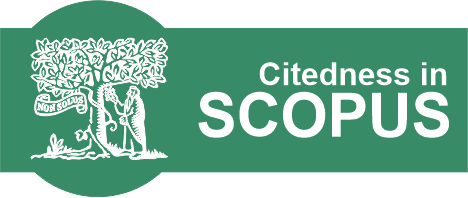Dysfunctional Family Mitigation in the Perspective of Islamic Law and Marriage Counseling
Keywords:
Hukum Islam, Keluarga Disfungsional, Konseling PerkawinanAbstract
One of the family problems is the emergence of symptoms of a dysfunctional family. Symptoms of a dysfunctional family can be seen from the phenomenon of families who like to fight or hurt each other. The causes of dysfunctional family symptoms can be caused by various factors, for example incompatibility in beliefs, imbalance in carrying out roles in the family and so on. This research aims to describe how to mitigate dysfunctional families from the perspective of Islamic law and marriage counseling. This research uses qualitative research methods. The results of the analysis show that mitigation efforts that can be carried out against dysfunctional families from an Islamic legal perspective are preparing good candidates first. A good partner is a partner of the same religion. This is reasonable because only couples who share the same religion can realize happiness in this world and the hereafter. After becoming a family, each family member is able to maximize their role in carrying out their obligations (commitment in carrying out their roles is coordinated by the husband as head of the family). Husbands must be able to set an example in carrying out their obligations both towards their wives and children. If a conflict occurs in the form of nusyuz or syiqaq attitudes, then the husband or wife or children or the family of the husband and wife try hard to find the best solution. Mitigating dysfunctional families based on a marriage counseling perspective can be done by paying attention to the role of love, the role of communication and the role of meeting family needs
References
Ahsin Sakho Muhammad (2017). Keberkahan Alqur’an:Memahami Tema-Tema Penting Kehidupan Dalam Terang Kitab Suci. (Tafsir Tematik Kontemporer). PT Qaf Media Kreativa : Jakarta
Ahmad Muradi & M.Noor Fuady (2020). Kurikulum pendidikan keluarga dalam perspektif Hadis. Pascasarjana UIN Antasari : Banjarmasin
Bimo Walgito (2017). Bimbingan dan Konseling Perkawinan. CV.Andi Offset :Yogyakarta
Euis Sunarti, MS (2006). Indikator keluarga sejahtera: sejarah pengembangan, evaluasi, dan keberlanjutannya. Fakultas Ekologi Manusia Institut Pertanian Bogor
Kustiah Sunarty & Alimuddin Mahmud (2016). Konseling Perkawinan dan Keluarga. Badan Penerbit UNM : Makassar
Kusbianto, Azmiati & M.A Pulungan (2019). Perlindungan Dan Aturan Hukum Keluarga Terhadap Perempuan Dan Anak Dalam Perkawinan. Jurnal Advokasi.Vol 07 No.01 Maret 2019,1-8
Umar, U., Hendra, H., & Yusoof, M. H. B. (2019). Building Children’s Character: Ethnographic Studuy of Maja Labo Dahu Culture at Bima Community. Jurnal Iqra”: Kajian Ilmu Pendidikan, 4(2), 182-201. https://doi.org/10.25217/ji.v4i2.582
Sayyid Sabiq (1995). Fiqh al-Sunnah, Jilid II. Dar al-Fikr: Beirut
Taqiyuddin al-Hishni (2004).Kifayah al-Akhyar. Juz II.Dar al-Kutub al-Islamiyyah: Jakarta
Tim Redaksi Nuansa Aulia (2013). Kompilasi Hukum Islam Dilengkapi dengan UU Nomor. 1 Tahun 1974. Cet V. Nuansa Aulia: Bandung
Suharsimi Arikunto (2003). Manajemen Penelitian. PT Rineka Cipta: Jakarta
Downloads
Published
How to Cite
Issue
Section
License
Copyright (c) 2024 Isnadul Hamdi, Efizal A

This work is licensed under a Creative Commons Attribution-ShareAlike 4.0 International License.











